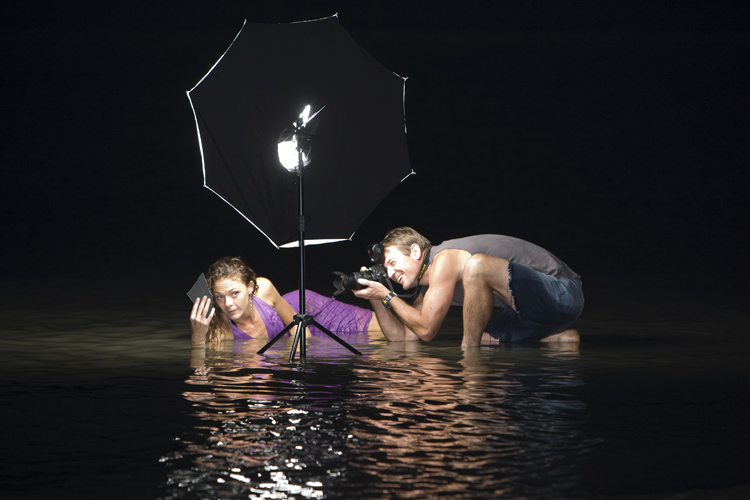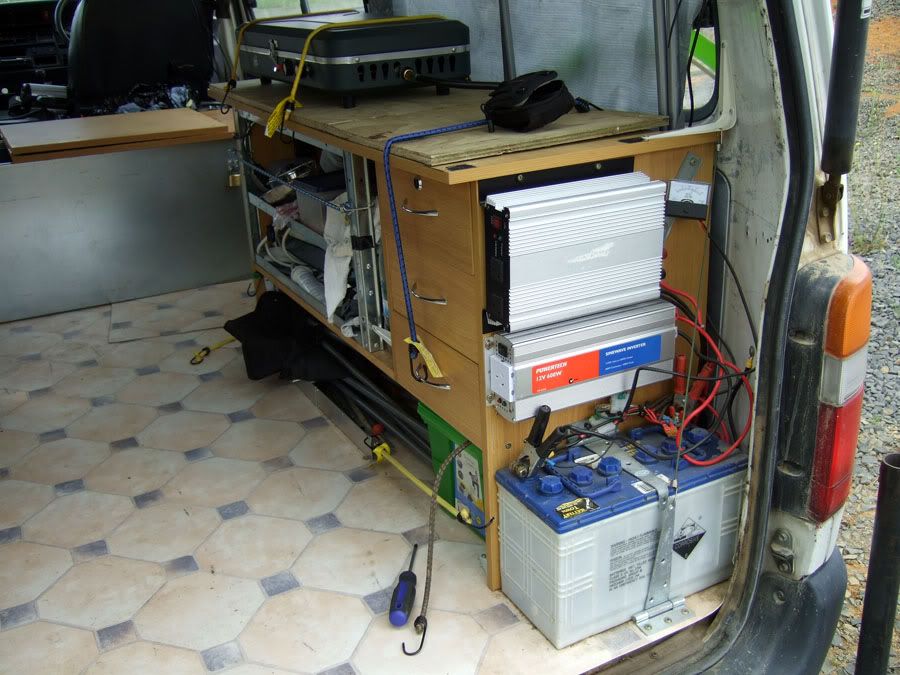" A shoemakers children go to school bare-foot " .
I'm an auto electrician and there's no way I'm going to spend the time and money I tell the customers to spend .... on my own van !
We had a few good second hand batteries at work , one is behind the drivers seat , the other is behind the desk at the back .
The earth connection goes straight down to ground , bolted to the body of the van . The positive connections of the two batteries are joined together with a 30 amp fuse at either end in case of a short circuit .
There is an isolating switch , usually for boat batteries , between the seats and this takes a positive feed from the main van battery , I operate this manually so it depends on my memory whether the batteries get charged or not ... the correct way to do this would be to use a voltage sensitive relay which would automatically connect the two systems together when the alternator starts charging [ 13.7 volts or higher ]- and disconnect when the voltage drops below 12.8 volts , in other words when the engine stops .
This will prevent the 'house batteries' draining the van battery to ensure that the van can start in the morning even if the additional batteries have been run dead flat .
If this ever happens , and the house batteries are run dead flat care would have to be taken not to rev the engine up when the vehicle starts because the house batteries will demand a very high current which could melt the alternator windings [ an alternator only has a voltage regulator and has no protection for excessive current draw ] , the 30 amp fuses would prevent this in my situation because they would 'pop' but I would not know this and the batteries would stay flat - with bigger fuses this would not happen so easily and the alternator windings could get dangerously hot . The best to do in this situation would be to start the van and let it idle slowly for 10 minutes , limiting the alternator's voltage and current output capacity to a minimum amount which would not damage it or blow the safety fuses with a sudden current surge .
Where possible I have used gas for cooking [ and emergency heating in winter ] since using the inverters for cooking [ microwave oven perhaps ] draws a huge current from the batteries that won't last long .
there are also 16 cigarette lighter plugs [ 4 batches of 4 ] in various places since many camping accessories plug into them easily .
The spare batteries have various other wires coming off them to the extra cigarette lighter adapters , running various accessories - two of which are map lights which can be pulled out and plugged in wherever needed , along with the gps , and a wireless fm transmitter something like this ...
so I will always have something to listen to even when there is no reception - and no cd's to skip tracks on rough roads . It takes a USB adapter and a 2 gig card holds 400 songs . It transmits wirelessly so it's just a matter of tuning the radio station in to the right frequency . this has the added advantage of being able to have a cheap looking stereo that's not worth stealing while being able to listen to high quality audio via an fm signal .
Fortunately I want the van to look like a piece of junk , I don't want people to think there may perhaps be $10 000 worth of camera gear inside .
Being a paranoid South African I also have an alarm system installed just in case .



